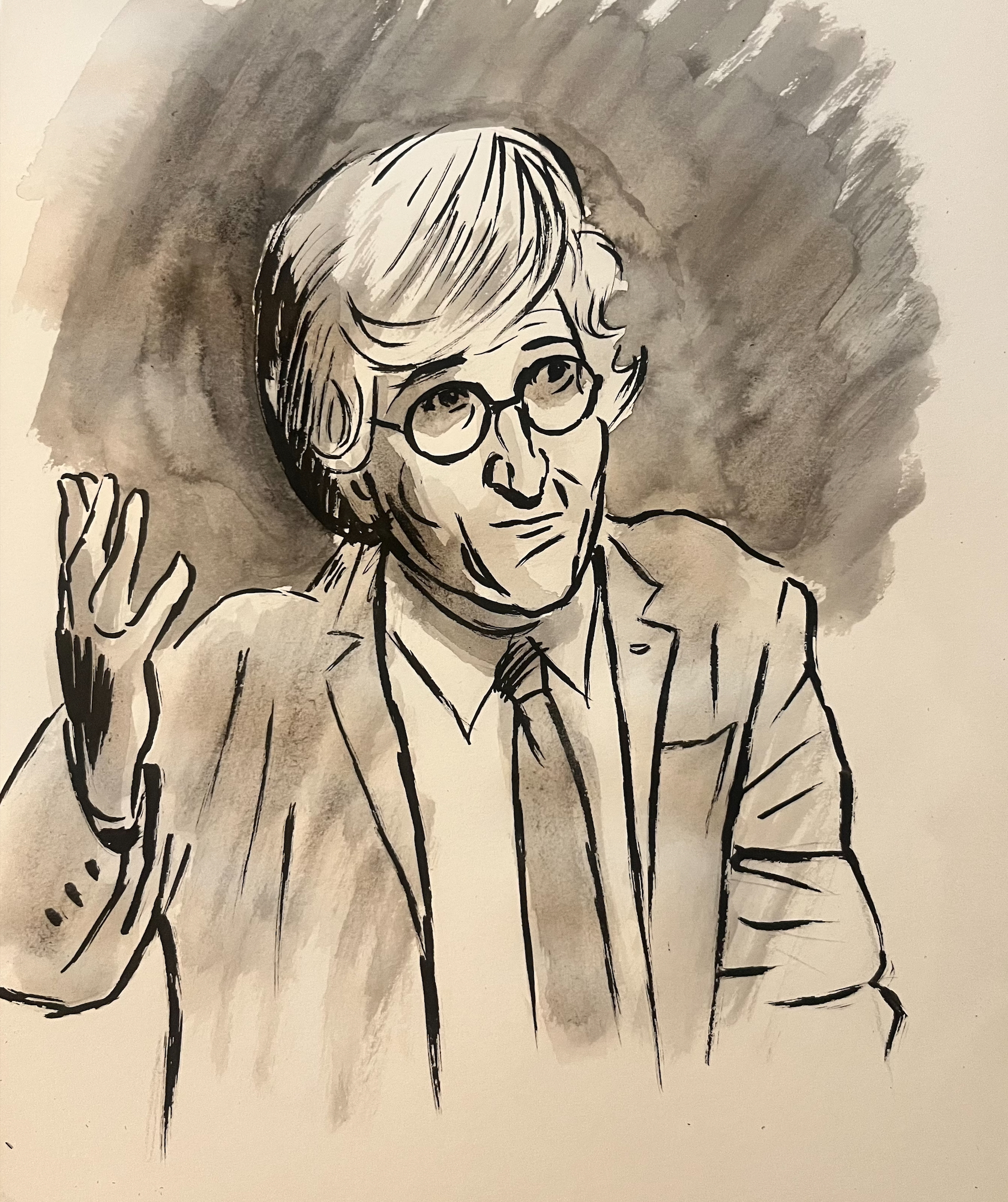1.5.2
Newsjunkie.net is a resource guide for journalists. We show who's behind the news, and provide tools to help navigate the modern business of information.
Use of Data
Mark Schapiro is a journalist whose reporting has shaped public understanding of climate change and the environment.
A critical component of Schapiro’s method is engaging directly with scientists and understanding the mechanics behind climate change. He encourages reporters to build a foundation of scientific knowledge to heighten their storytelling and provide context for their findings.
“Being regularly in touch with science and scientists can help enrich your reporting because you know what’s at stake, and you know how things connect to each other,” he said.
Schapiro also urges reporters to develop their own grasp of the context surrounding their story—whether it involves people, policies, or business interests. This depth of knowledge is not only necessary to tell a complete story, but it has a secondary benefit to Schapiro—it’s what keeps him sane.
“I highly value coming to an understanding of why something is happening, and that’s what I do. You just stay sane by keeping on doing your job. It’s frustrating, but you’ve always got to keep learning and keep understanding.”
Even if legislation inspired by his work dies in Congress, and climate change continues to be largely ignored by the those in power, Schapiro has still changed something. He himself has changed.
“Every story is really a journey. You have to take somebody from one place to another, and it could be a literal place, but it could also just be a place of understanding. You evolve. And if you can think of it as a journey, I think that can be helpful.”
Schapiro’s interest in environmental journalism began at the Center for Investigative Reporting. After graduating from UC Santa Cruz, the CIR promoted him from intern to junior reporter, and he began working with its co-founder, David Weir, on an investigation into pesticides that had been banned in the United States. By tracking shipments of hazardous chemicals from Los Angeles to their destinations in Central American farmlands, and then investigating the produce those farmlands exported back to the U.S., Schapiro helped expose how banned pesticides were re-entering American homes. This work culminated in the book Circle of Poison: Pesticides and People in a Hungry World and inspired the Circle of Poison Prevention Act of 1991. The bill did not pass, but the energy surrounding the project was enough to get Schapiro hooked on environmental journalism.
“I thought, ‘Oh, this is pretty damn interesting, and you can actually have an impact,’” Schapiro recalled. “But I also realized that in the process, you could make bigger points. You could get from the trail of pollution to some of the larger structural, systemic issues at the heart of environmental journalism.”
Schapiro’s storytelling approach is to begin with small details and then expand to reveal the broader picture. In an article for Capital & Main, he essayed the endangered status of California’s Cabernet Sauvignon grapes to reveal the growing popularity of carcinogenic pesticides among vine-growers, the cascading butterfly effects of climate change, and phenology (the study of how climate variations affect biological life cycles). The shift from a narrow to a wide scope in the course of a story is what Schapiro recommends to other reporters covering climate-related topics.
“Climate change is not a story,” he explained. “Climate change is a phenomenon that is transforming our life on Earth. Our job is, in a way, to find the stories that help to illustrate these points, and those are very personal, intimate, often local, highly specific stories.”
Schapiro identifies gaps in climate coverage through his column for Capital & Main, Steal this Climate Story. The column offers journalists story leads and guides to under-reported areas of the climate crisis, encouraging them to deepen their engagement with environmental reporting.
Along with articles in Mother Jones, The Nation, The Guardian, Capital & Main, KQED, and PBS, Schapiro has authored and co-authored five books, including Seeds of Resistance: The fight for food diversity on our climate-ravaged planet. From 2003 to 2012, he served as senior correspondent at the Center for Investigative Reporting (CIR). His work earned him the Sigma Delta Chi Award from the Society of Professional Journalists in 2012, and the Most Valuable Pollution Prevention Award in 2008. He was a finalist for the Alfred I. duPont–Columbia University Award in 2005. Schapiro is a board member of the Society of Environmental Journalists (SEJ) and lectures on environmental and climate reporting at UC Berkeley’s Graduate School of Journalism.
Contact Mark Schapiro: mschapiro@berkeley.edu
Sources
Mark Schapiro interviewed by Morgan Kriesel, December 23, 2024
© 2025 Newsjunkie.net
1.5.2
1.5.2